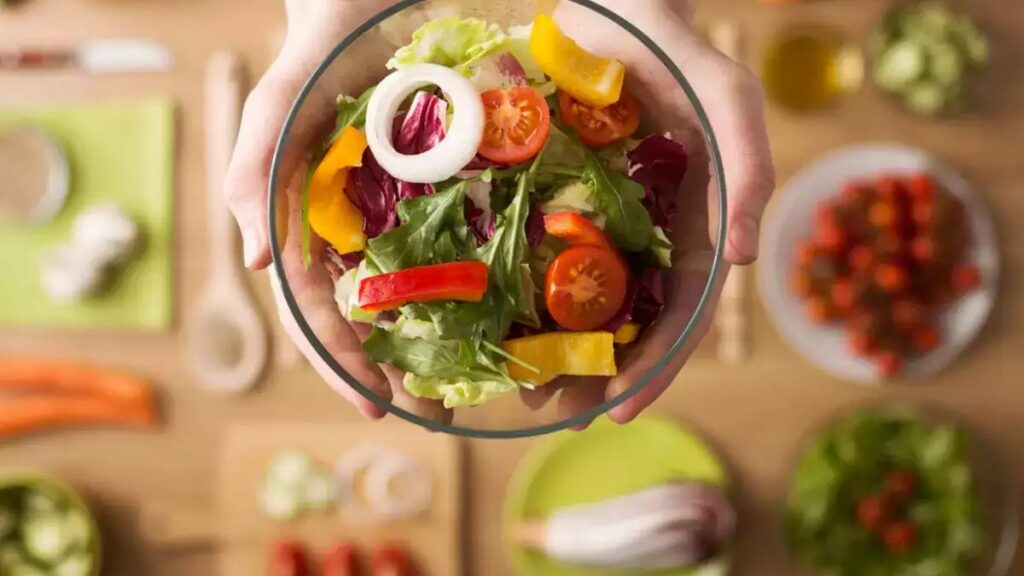The term “diet” is disliked by all. But what about a diet that recognizes that you are a human and that sometimes you will need a cookie? A diet that pushes you to have more of the good stuff while allowing for things you crave?
Through nutrition, the Mediterranean-DASH Diet Intervention for Neurodegenerative Delay, or MIND diet, seeks to halt cognitive deterioration. It emphasizes nine dietary groups, many of which are plant-based, and provides helpful guidance on reducing the amount of certain high-fat and high-sugar meals.
The diet was developed in or around 2015 when researchers at Rush University in Chicago discovered a link between this method and a slower rate of cognitive decline in a five-year trial involving around one thousand senior citizens. The diet shares many characteristics with the similar Mediterranean diet and the DASH diet, which emphasizes foods high in potassium, calcium, and magnesium and low in salt, sugar, and saturated fat.
ADVICE SCALE FOR HEALTH
Our brains are oxidative by nature, with a high rate of metabolic activity due to their incredible capacity. This leads to an imbalance between antioxidants and free radicals, which can damage organs and tissues and increase your susceptibility to illness.
While cells in most other parts of the body can heal themselves, this is not the case with the brain. This increases the brain’s susceptibility to oxidative stress, which leads to DNA stress.
The likelihood of damage increases with age, and this is where conditions like ALS, Parkinson’s, and Alzheimer’s might manifest. Antioxidants aid the body’s defense against stress.
Your body becomes inflamed when it reacts to anything alien. Cancer, diabetes, arthritis, depression, and Alzheimer’s disease all gain traction when inflammation persists, which is occasionally caused by a diet heavy in processed foods. Reducing the consumption of foods heavy in fat and sugar can help stop further harm.
Consider it similar to going to the gym: While working out has numerous advantages, it also produces lactic acid, which can lead to soreness. Every task the brain does also results in the production of unwanted chemicals by its cells. You can tip the scales in the opposite direction by adhering to the MIND diet.
REMAINING ON PATH
The MIND diet restricts portions of red meat, sweets, cheese, butter or margarine, and quick or fried meals while promoting wholesome foods from nine categories. According to the National Institute on Aging of the National Institutes of Health, the goals are:
- A minimum of six portions of leafy green veggies per week
- A minimum of one serving per day of additional vegetables
- Two or more servings of berries per week
- Three or more servings of whole grains every day
- A weekly meal of fish
- Two portions of poultry per week
- Three portions of beans every week
- Five servings of nuts per week
- A minimum of six servings of olive oil per week
Foods that are restricted include:
- Less than five servings of pastries and sweets per week
- Fewer than four portions of red meat each week
- Less than one serving of cheese and fried foods per week
- Less than one spoonful of stick margarine or butter every day
There are only four categories, so if that sounds like too much to keep track of, you may start by concentrating on categories to limit. Note that these are restricted items, not forbidden ones: It’s not exactly deprivation to consume three dishes of red meat and four portions of sweets per week.
It’s also beneficial to consider meal planning; you may simply combine these proteins with grains and veggies to form complete meals. An additional benefit is that the MIND diet is not culturally exclusive. The MIND diet allows your Filipino grandma to consume the foods she loves, even though she might not prefer the strange flavors of the Mediterranean diet.
Too much to even handle the thought? Create a to-do list and post it on the refrigerator. Whether it’s a kale and berry smoothie, a whole grain bread sandwich, or supper of fish and veggies, create a list of everything you put in. Seldom will someone tick every box right away. If not, gradually modify until you are within the acceptable range.
Final Sentence
The MIND diet won’t stop dementia from getting worse if someone already has it. However, the precise onset of cognitive deterioration is unknown. You’re well on your way to a lifestyle shift that may increase your odds of maintaining your cognitive abilities well into old age, even if all you do is concentrate on eating more whole foods and less processed foods.

